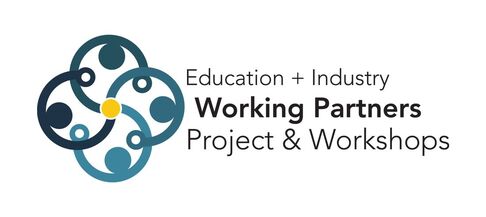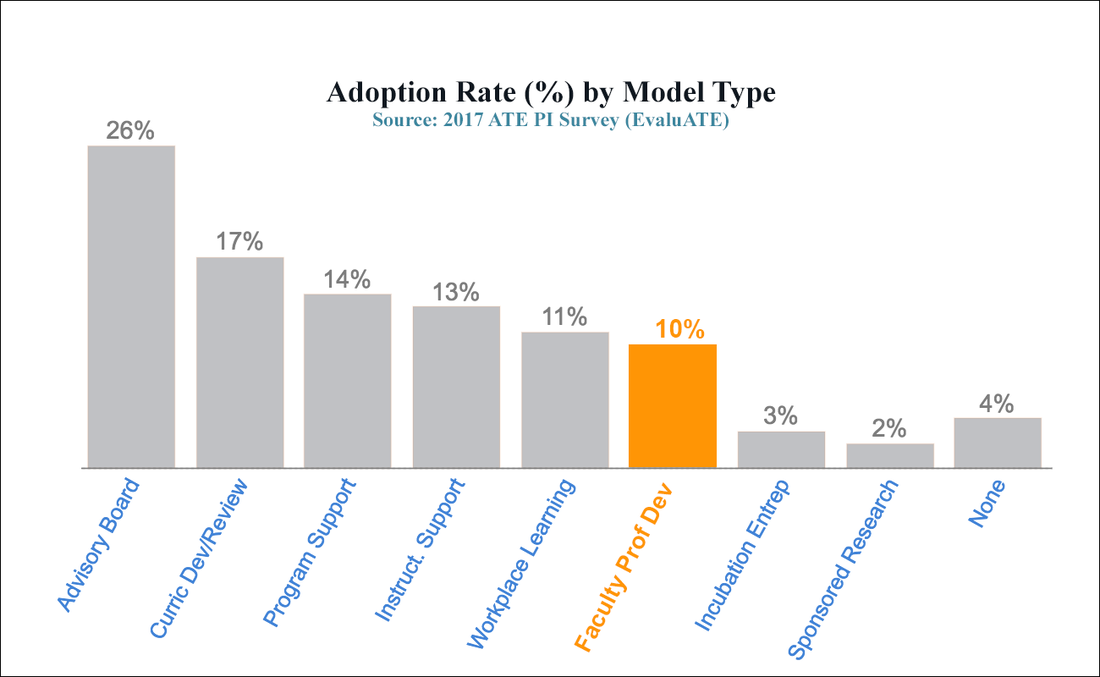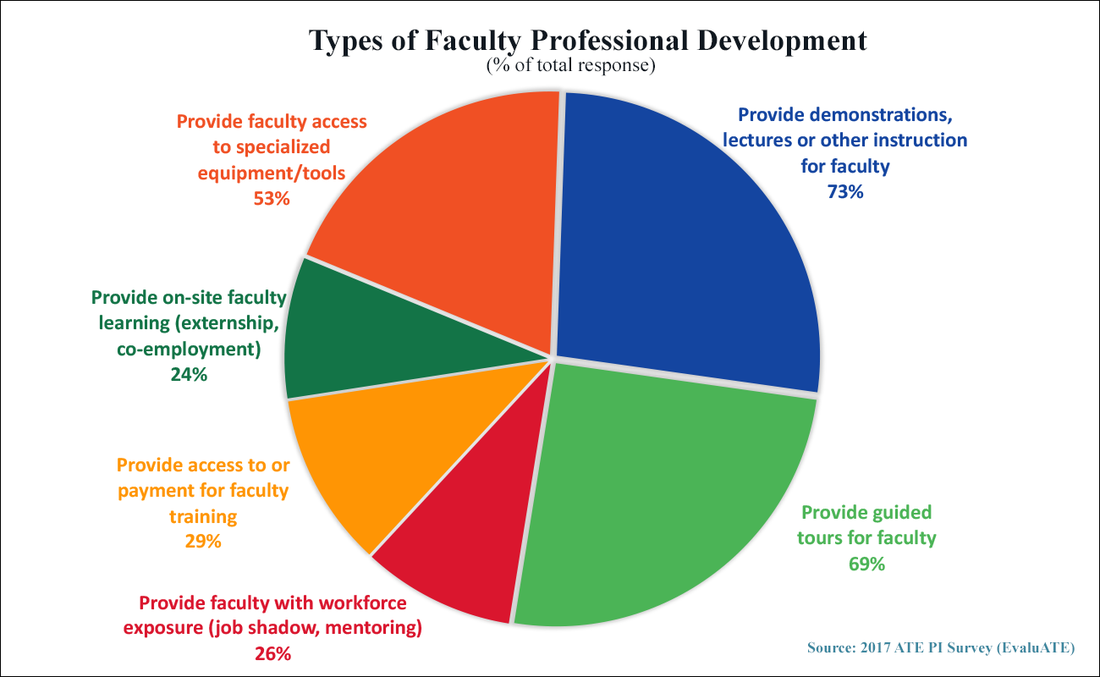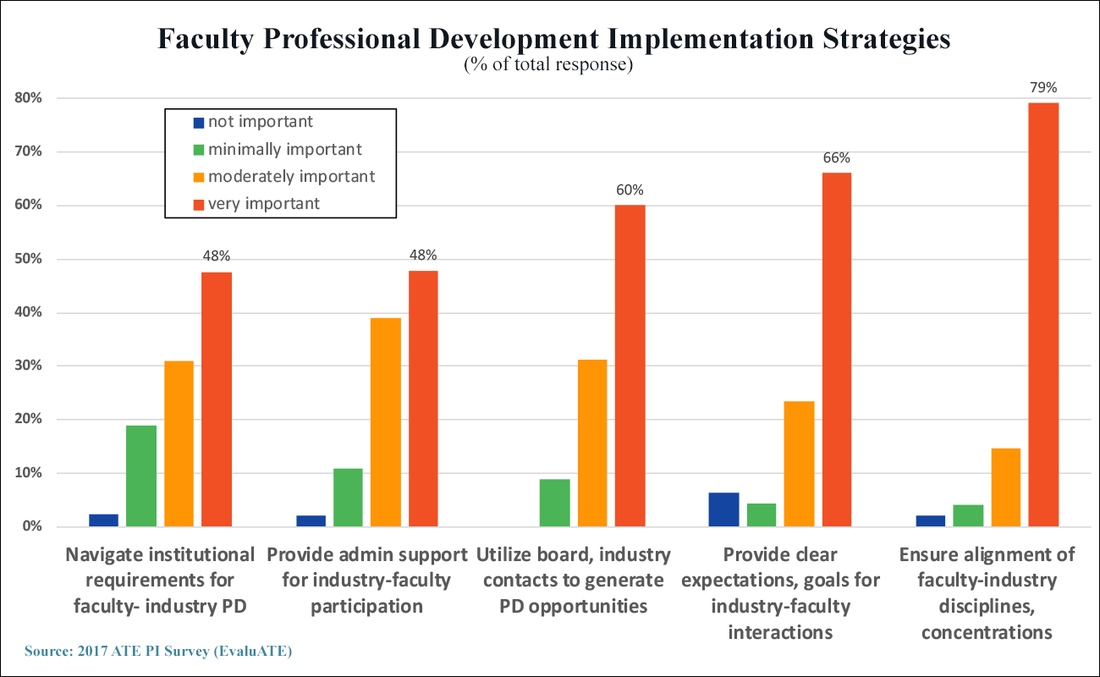Definition: Industry partner provides educators with occupational and industry experience and training.
Examples: Job shadows, externships, mentoring, equipment access, process or equipment demonstrations, training.
Examples: Job shadows, externships, mentoring, equipment access, process or equipment demonstrations, training.
|
Implementation Strategies
Reported Impacts
Reported Challenges
|
Click on image to enlarge
|
Faculty Professional Development Case Study
Release Pending




